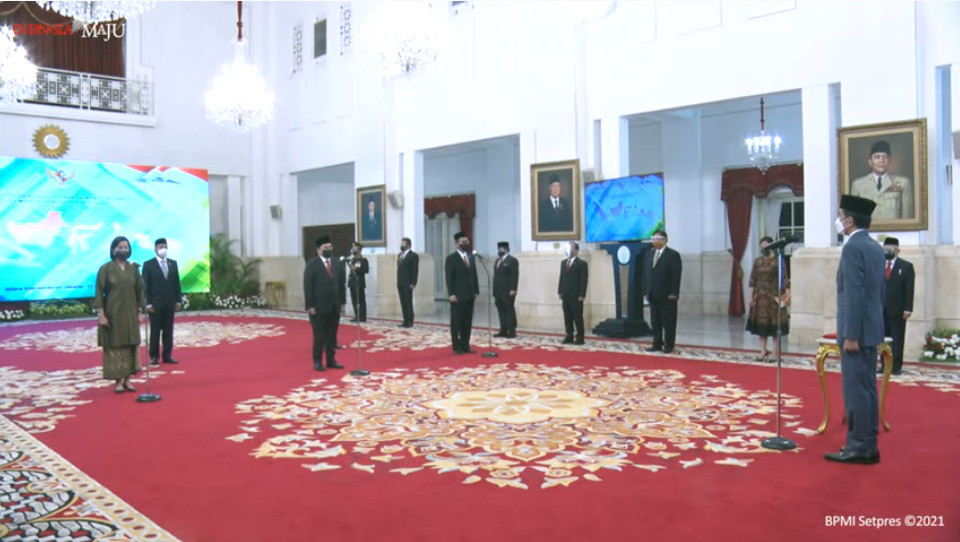Popular Reads
Top Results
Can't find what you're looking for?
View all search resultsPopular Reads
Top Results
Can't find what you're looking for?
View all search resultsA different species of SWF
Yet more important is that INA funds and assets are not classified as state assets and are therefore not subject to the Corruption Law, which has stifled the management of SOEs.
Change text size
Gift Premium Articles
to Anyone
T
he Indonesia Investment Authority (INA), which is mandated with sui generis (special authority) to partner with foreign direct investors (FDI) to develop infrastructure and natural resources, will soon start up operations with authorized capital of US$5 billion after the installment of its board of directors on Tuesday.
The 2020 Job Creation Law, the legal foundation of INA, equates the role of INA to that of a sovereign wealth fund (SWF), though the government does not have the luxury of fiscal and natural-resource fund surpluses and foreign reserves that fund the most popular and largest SWFs in the world. The INA capital consists of development and stabilization funds, and is derived from the state budget, which has always suffered a deficit, as well as the equity capital of state owned enterprises (SOE), most of which are notorious for bad governance.
But the government is highly optimistic that its special authority and highly professional boards of supervisors and directors will unshackle INA from the bureaucratic and political trappings that undermine Indonesian SOEs and will thus give it broad flexibility and dynamism in management and investment operations. Yet more important is that INA funds and assets are not classified as state assets and are therefore not subject to the Corruption Law, which has stifled the management of SOEs.
The regulations on INA, for example, stipulate that its executives cannot be held responsible for losses if the losses are the result of well-meaning business decisions. INA reports directly to the President , who appoints its board of supervisors, the majority of whom are highly experienced professionals. This board selects and appoints the board of directors, who are all professionals with good reputations.
Japan Bank for International Cooperation, the United States International Development Finance Corporation, a Canadian pension fund and several other foreign SWFs have reportedly committed to investing tens of billions of dollars in INA. But we are apprehensive about these intents until they are realized into legally binding deals as joint ventures, special purpose vehicles or other business partnerships.
On paper, given the huge liquidity available in the international market and the near zero interest rates in most developed countries, Indonesia could be an attractive alternative for investors. But the uphill challenge is how INA will offer investors much higher returns than what they have so far received from Indonesian global bonds (6 percent yield on 10-year bonds).
Market confidence in INA will depend ultimately on whether it can become an island of high standards of good corporate governance, transparency and accountability in the sea of notorious public-sector governance in Indonesia.
Whether the governance structures in INA adequately assuage investor concerns remains to be seen. Certainly, as INA will seek to raise funds from the international market, it must be managed strictly under the 2008 Generally Accepted Principles and Practices, issued by the International Working Group of SWFs under the auspices of the IMF.
These principles assess many factors, including the country’s political ability to confront growing public-sector indebtedness and the willingness of its citizens to accept fiscal austerity, the structure of the fund, reporting, transparency, accountability and independence from the fiscal policy.










